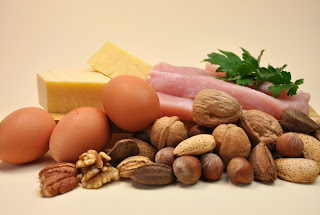> "Even God recognized the need for someone like me in His holy scheme when He appointed Azrael the Archangel of Death to terminate lives. In this way human beings feared, cursed, and hated the angel while His hands remained clean and His name unblemished. It wasn’t fair to the angel. But then again, this world was not known for its justice, was it?"
> Most of the problems of the world stem from linguistic mistakes and simple misunderstandings. Don’t ever take words at face value.
> Friday is the best day of the week to beg, except when it is Ramadan, in which case the whole month is quite lucrative. The last day of Ramadan is by far the best time to make money. That is when even the hopeless penny-pinchers race to give alms, keen to compensate for all their sins, past and present. Once a year, people don’t turn away from beggars. To the contrary, they specifically look for one, the more miserable the better. So profound is their need to show off how generous and charitable they are, not only do they race to give us alms, but for that single day they almost love us.
> Try not to resist the changes that come your way. Instead let life live through you. And do not worry that your life is turning upside down. How do you know that the side you are used to is better than the one to come?
> Some people feed on the miseries of others and they don’t like it when there is one less miserable person on the face of the earth.
> “You dervishes are as crazy as rats in a pantry. Especially you wandering types. All day long you fast and pray and walk under the scorching sun. No wonder you start hallucinating - your brain is fried!” I smiled. He could be right. They say there is a thin line between losing yourself in God and losing your mind.
> "What is the point of roaming the world when it’s the same misery everywhere? Trust me. There is nothing new out there. I have customers from the farthest corners of the world. After a few drinks, I hear the same stories from them all. Men are the same everywhere. Same food, same water, same old crap.”
> “Don’t judge the way other people connect to God. To each his own way and his own prayer. God does not take us at our word. He looks deep into our hearts. It is not the ceremonies or rituals that make a difference, but whether our hearts are sufficiently pure or not.”
> “God created suffering so that joy might appear through its opposite. Things become manifest through opposites. Since God has no opposite, He remains hidden."
> "Whatever happens, do not forget, nothing God has created is in vain, whether wrath or forbearance, honesty or guile."
> “Everybody has a name. God has countless names. Of those, only ninety-nine are known to us. If God has so many names, how can a human being who is the very reflection of Him go around without a name?”
> "We were all created in His image, and yet we were each created different and unique. No two people are alike. No two hearts beat to the same rhythm. If God had wanted everyone to be the same, He would have made it so. Therefore, disrespect in differences and imposing your thoughts on others is tantamount to disrespecting God’s holy scheme.”
> "One does not become a believer overnight. He thinks he is a believer; then something happens in his life and he becomes an unbeliever; after that, he becomes a believer again, and then an unbeliever again, and so on. Until we reach a certain stage, we constantly waver. This is the only way forward. At each new step, we come closer to the Truth.”
> "When a true lover of God goes into a tavern, the tavern becomes his chamber of prayer, but when a wine bibber goes into the same chamber, it becomes his tavern. In everything we do, it is our hearts that make the difference, not our outer appearances. Sufis do not judge other people on how they look or who they are. When a Sufi stares at someone, he keeps both eyes closed and instead opens a third eye - the eye that sees the inner realm.”
Internet Sources:
http://www.ebooksbeus.com/uploads/6/3/0/8/6308108/the_forty_rules_of_love_-_elif_shafak.pdf
http://www.scribd.com/doc/148408035/Forty-Rules-of-Love-a-Novel-of-Rumi







